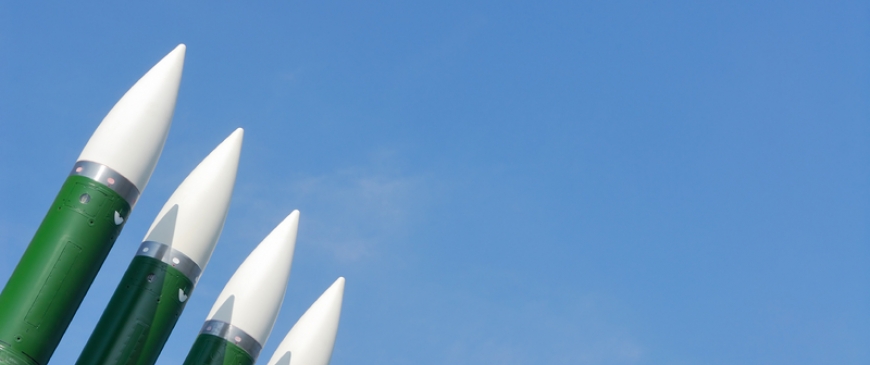
Space-age spending holds key to EU's destiny
If Europe wants to become a 21st century global power, it must reach for the stars. In other words, European governments should invest more in satellites and other space-based technologies to boost local high-tech industries, monitor the environment and help to manage military operations.
Space-based technology is becoming increasingly important in peoples' everyday lives. Whether they are making bank transfers or driving a car, more and more Europeans depend on satellites. What is more, European governments appear to be renewing their efforts to build up capabilities in space. This is because they recognise that space technology can help them achieve their goals in a wide range of policy areas. These can include managing humanitarian aid operations in Africa using satellite photography, or linking up ambulance crews and hospital emergency departments with sophisticated communications equipment.
Some of the strongest supporters of European space efforts can be found in EU institutions. The European Commission published a space white paper in November 2003 highlighting the value of space technologies for a variety of EU policies, ranging from environmental protection to internal security.
The European space industry has a total annual turnover of approximately €5.5 billion, directly employing 40,000 Europeans. Space programmes that bring together many of today's advanced technologies can help to ensure that the European high-tech industry remains competitive. Yet global space turnover amounts to roughly €70 billion. The US dominates global space expenditure: this year's US government space budget is close to €35 billion, with roughly half spent on military applications and half on civilian projects. Indeed, the US accounts for over 90 per cent of the money spent on the world's military-related space projects. Europe, by comparison, spends roughly €5 billion on space, including all national and European programmes, both military and civil.
The Europeans are already investing some €3 billion in the Galileo satellite navigation system, the world's first real alternative to the US-run Global Positioning System (GPS). Once Galileo is up and running in 2008, it will help to guide cars, trains and airplanes, reduce traffic jams, allow companies to contact nearby potential customers, and protect and monitor the environment – and all this, claim the Europeans, with much greater accuracy and reliability than GPS alone can offer.
But Galileo would be available for military purposes, as well as civilian ones. During the 2003 war in Iraq, the US used GPS to guide its 'smart' bombs and missiles on their deathly missions. European peacekeepers in say, the Balkans, may soon rely on Galileo to define their positions or steer munitions. The Americans worry that the EU is not ready to manage Galileo's military role. They warn that the technology could fall into the hands of terrorists or unstable governments who may ultimately use it against European or US forces. A number of non-EU countries, such as China, Brazil and Israel have expressed interest in getting commercially involved in the Galileo programme. Not all potential partners may be entirely motivated by the financial and intellectual benefits of the European system. The EU must scrutinise those requests with greatest care.
If the EU wants to become a more effective military force, it needs to continue to invest in joint space projects, not only Galileo but also spy satellites and other military ventures. The 'European security strategy', agreed by EU leaders in December 2003, says that the EU should be prepared to deal with a number of security threats, ranging from humanitarian crises to the proliferation of weapons of mass destruction (WMD). In particular, European governments will have to adapt their intelligence and information resources to cope with more volatile situations – possibly involving the use of WMD – and more elusive enemies such as international terrorist networks.
European defence ministries already know that they need to spend more of their defence money on new equipment, and less on conscript troops and outdated weapons programmes. However, of the €40 billion they spend on buying and developing military equipment, the Europeans only spend €550 million a year on space-based military technology. Investing a bit more of their defence money in space technologies that are useful to the soldier on the ground – intelligence, navigation and telecommunications systems – would greatly increase the effectiveness of European armed forces.
Furthermore, European governments should also promote innovative ways of using space technology for 'security' in the broadest sense. Satellites designed to detect industrial pollution could also be useful for dealing with other security threats, such as observing missile developments in other countries, to verify if disarmament treaties were being violated or not. And space-based communications are especially useful for 'joining-up' the different parts of a government that deal with security – for example helping police, emergency response services, and armed forces to co-ordinate their actions in the case of natural disasters or a terrorist attack, by using shared communications and navigation technology and satellite imagery. Ultimately, Europe's success on earth will partly depend on its success in space.
Daniel Keohane was a research fellow at the Centre for European Reform, and co-author with Carl Bildt, Mike Dillon, Xavier Pasco and Tomas Valasek of Europe in Space (CER, October 2004)
